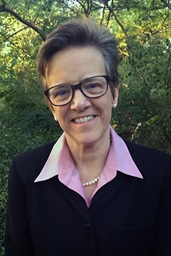The United Methodist Church has a long history of tackling complicated, controversial and contemporary topics such as polygamy, child marriage, abortion, violence and treatment of migrants.
While much attention currently is focused on the church’s stance on LGBTQ people, it is not the only human struggle the church prays about and addresses.
For the past eight years, a diverse group of writers and editors has been revising the denomination’s Social Principles, which since its founding has been an expression of the Wesleyan commitment to social holiness for The United Methodist Church.
The Revised Social Principles crisscrossed continents, was read and studied by thousands and will land in Minneapolis in May for final review and approval at the 2020 United Methodist General Conference.
Review Revised Social Principles
To read the Revised Social Principles in one of seven languages, visit www.umcjustice.org/sp2020.
The revised document was broken down into four sections: creation, economic, social and political communities. Scriptural passages and excerpts from John Wesley’s writings introduce each section.
Moore said the toughest sections to revise were on violence and sexuality.
“People raised multiple concerns about violence, revealing our very diverse United Methodist contexts and perspectives,” she explained.
“For example, people living under the constant threat of violence often see the use of military force differently from those in which the military itself is a major threat to peace or those who are committed to nonviolent resistance.”
Many of the participants who worked on the document said listening to diverse voices was eye-opening and rewarding.

A consultation on the Social Principles was held at Africa University in Old Mutare, Zimbabwe. Photo courtesy of United Methodist Board of Church and Society.
“I find it important to emphasize that America has not lost anything in making the Social Principles more global; it is better for them as well,” she said.
Movafagh said she was especially proud of the outcome of two issues the writing team tackled: reproductive health and human sexuality.
“Reproductive health is a lot more than abortion,” she said. “Women worldwide need good reproductive health care both throughout and after a pregnancy. The deaths of women giving birth are still too high worldwide.”
In the Social Community section, under the heading of Human Sexuality, the document lifts up the issue of consent and the right to decide about your own bodies, Movafagh added.
“We emphasize sexual relationships in love, care and respect without specifying what that looks like. We have therefore pointed to the values in good sexual relationships rather than entering the current debate,” she said.
The process began with listening sessions. Drafts of the revisions were sent to various church settings. Also included were individual consultations with church leaders and scholars and an online survey.
“We heard from 1,700 United Methodists from across the connection,” Moore said. “Keeping our commitment to listen to the church, we analyzed all of the responses and identified the themes, critiques and suggestions.”
The task force wrote three drafts before handing off the final version to the board. The final draft was released in seven languages in early October.

The Rev. Sharon Austin, Florida Conference director of Connectional and Justice Ministries, and Carla Works, professor at Wesley Theological Seminary, work on the Revised Social Principles during a writing session in Washington. Photo courtesy of United Methodist Board of Church and Society.
“We certainly did not always agree on all of the issues that needed critical rethinking and review, but we did our best not to remain disagreeable,” said the Rev. George D. Wilson Jr., Liberia Conference.
Randall Miller, chair of the task force on Social Principles for Church and Society’s board of directors, said the team is aware that the 2020 General Conference will be dealing with “profound” questions about whether the denomination can stay united.
“We also know that the church continues to wrestle with issues related to human sexuality, reproductive health, gender and racial/ethnic exclusion and other important issues,” he said.
The purpose of the Social Principles revision was not to solve those problems, he added.
Subscribe to our
e-newsletter
Like what you're reading and want to see more? Sign up for our free daily and weekly digests of important news and events in the life of The United Methodist Church.
The Rev. Esther D. Jadhav, a Church and Society board member and an assistant vice president at Asbury University, said she served in several capacities as a member of the writing and editorial teams.
“I was most impressed with the level of research that was conducted, every perspective and every experience was captured. Such a high level of global sociological study centered around the life of the church is rare if not unheard of,” she said.
Moore pointed out that the process was designed to be reflective and participatory.
“The task force and editorial team listened to the chorus of voices and passions and the people of The United Methodist Church have their handprints all over the Revised Social Principles,” she said.
Gilbert is a news writer for United Methodist News Service. Contact her at (615) 742-5470 or [email protected]. To read more United Methodist news, subscribe to the free Daily or Weekly Digests.
Like what you're reading? Support the ministry of UM News! Your support ensures the latest denominational news, dynamic stories and informative articles will continue to connect our global community. Make a tax-deductible donation at ResourceUMC.org/GiveUMCom.




